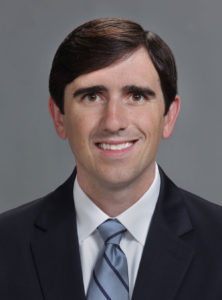Shoulder Augmentation Surgeon

Are you an athlete who participates in sports that involve throwing overhead? If so, you may be at risk of developing a rotator cuff injury. Rotator cuff repair and augmentation surgeon, Dr. Robert Boykin provides diagnosis and both surgical and nonsurgical treatment options for patients in Asheville who have developed a rotator cuff injury. Contact Dr. Boykin’s team today!
Anatomy of the Rotator Cuff
The rotator cuff muscles that surround the shoulder are responsible for centering the ball in the socket of the shoulder and providing the strength to move the arm and participate in overhead activities. The rotator cuff tendons are the area that connects the muscle to the bone and allows the muscle to function by moving the arm. These tendons can become damaged from a traumatic event such as a sporting accident or hard fall and can also be damaged from gradual micro-trauma that stems from overuse and impingement (pinching of the tendon against the acromion process of the scapula). Chronic degenerative changes of these tendons can also make them weak and prone to tears. Injury to the rotator cuff may involve one or more tendons. The spectrum of disease ranges from tendonitis (inflammation of the tendon) to partial tears to full thickness tears (complete detachment of the tendon). Shoulder surgeon Dr. Robert Boykin specializes in the treatment of rotator cuff injuries for patients in Asheville, Arden, Fletcher and surrounding North Carolina communities.
When to Treat a Rotator Cuff Injury
Many cases of rotator cuff tears require surgical treatment in an attempt to alleviate pain and restore function and strength to the shoulder. In instances when the tear is acute and the tendon/muscle is healthy, the rotator cuff can usually be primarily reattached to the original footprint (insertion of the tendon) using strong sutures and anchors placed in the bone. In unusual tear patterns, chronic retracted tears, degenerative tears, and tears that have some atrophy (loss of bulk) of the muscle, the rotator cuff tendon may be difficult to repair or not able to be repaired. In these situations, recent research has described a safe and effective technique to augment the repair providing better strength and a healing environment for the tendon. The technique is referred to as rotator cuff repair with augmentation or graft reinforcement.
What is a Rotator Cuff Repair with Augmentation?
This procedure is typically performed with a combination of an arthroscopic and open approach to the shoulder. The torn tendon is identified and a primary repair is attempted. At this point a decision is made as to whether the tendon would benefit from an augmentation. If this is the case a donated graft (patch) is obtained. The patch is sewn into the rotator cuff tendon and a repair is completed using strong sutures and anchors into the bone to secure the graft and tendon together. In specific situations, adjuncts may be used to assist in healing such as a marrow stimulation healing response technique or an injection of platelet rich plasma. The type of tear will dictate the exact configuration of the repair needed as well as the size of the patch.
Recovery Following a Rotator Cuff Repair with Augmentation
After surgery, patients are placed into a sling and an individualized physical therapy program is started. The specific progression of therapy will depend on the configuration of the tear, type of repair, and number of tendons involved. In cases of graft augmentation the progression of therapy is slower than that involving a primary repair. This typically consists of passive range of motion, followed by active motion, strengthening, and eventually return to activities. The sling is worn for 8 weeks after the surgery. The procedure has been shown to be highly successful in alleviating pain and improving function of the shoulder.
For additional information on rotator cuff injuries, or to learn more about rotator cuff repair with a graft reinforcement augmentation, please contact the office of Dr. Robert Boykin, orthopedic shoulder specialist and surgeon serving Asheville, Arden, Fletcher and surrounding North Carolina communities.
